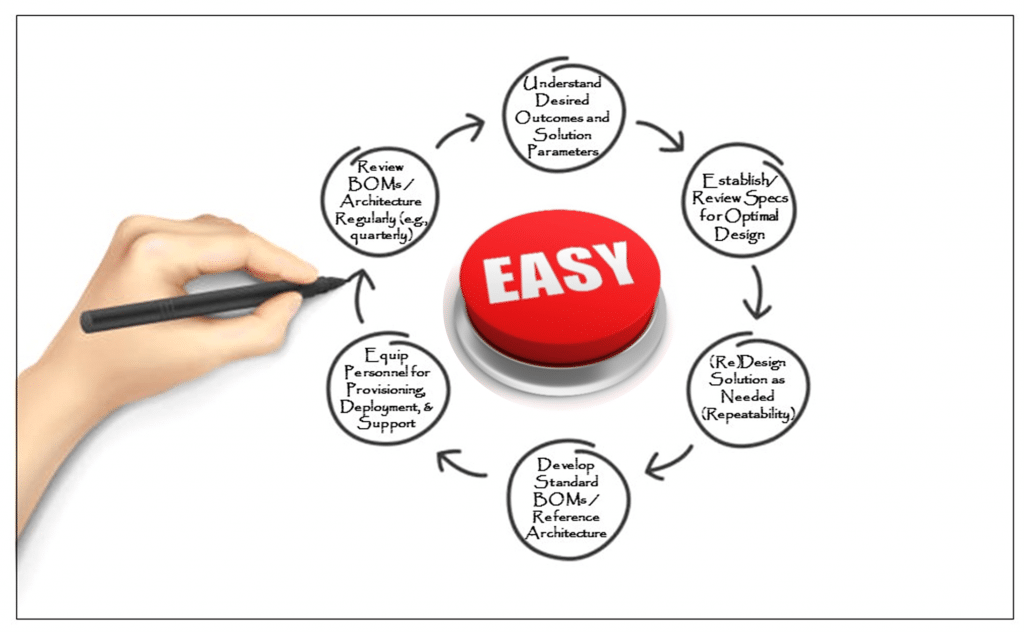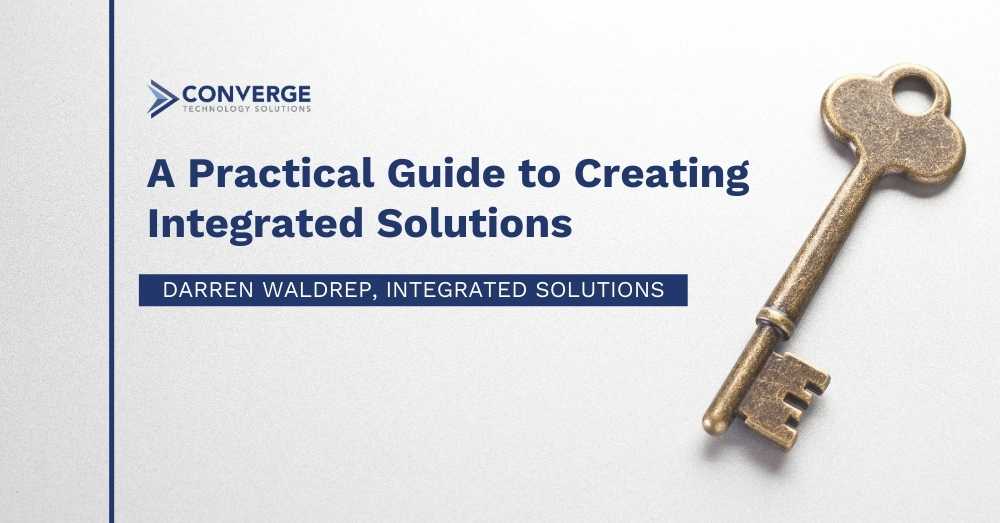In The Value of Integrated Solutions, we defined the term ‘integrated solution’ and emphasized how, in essence, creating an integrated solution is really about taking a new product to market or enhancing an existing product to make it more comprehensive. Integrated solutions have become increasingly important as organizations are looking for the “easy button” to deliver a clear-cut business outcome, but they also require a holistic approach. They ask questions such as: “What services are included?”, “How will I support the product?”, “How and where can I pilot the solution?”, and “How can I best take the product to market in a way that helps differentiate and increase its potential for success?” For our purposes, “product” may mean an actual solution installed in an on-premises environment or another manifestation, including managed services, an aaS offering, etc.

So, how does one get started? First, determine the need. Are you in the business of providing some sort of offering which either requires or is better deployed with the help of technology? Some examples include:
- A software application which is tightly coupled with (and thereby leverages) optimized IT infrastructure (compute, storage, networking, accelerators, middleware stacks – individually or in combination).
- A compute-centric solution, whether on-prem, managed, in the cloud, or a hybrid.
- A data-intensive solution that requires massive amounts of storage and/or specialized data management.
- An application deployed on IT infrastructure that leverages machine learning or AI.
- A solution that operates in “rugged” environments such as manufacturing plants, mills, or outdoors.
- A service optimized or enhanced by IT systems, such as online video conferencing, IP telephony, video streaming/broadcasting, security/surveillance/monitoring, or medical imaging.
- A product or service delivered with the help of self-service kiosks.
- A hardware device such as an IT network management appliance or environmental control system.
Second, how do you go to market and expand your market reach? Whether you sell directly to end customers, through a channel, as a service, etc., a solution integrator should be able to assist you in crafting a model that depicts how all parties will work together to accomplish the mission and help fill in the gaps to complete your solution vision. It’s also good to ask, what are my end customers looking for? What are they asking for that I currently do not provide? You may discover a solution integrator can fill some of these gaps.
Third, determine the criteria to select a proven integrator. A good integrator will make the following equation a reality:
Integrated Solution = Intellectual Property + IT Infrastructure + Integration Services + Logistics & Supply Chain Management
The key is focusing on the second, third, and fourth components to enhance the first component, which is the driver and reason why the end customer is buying the solution. Also, remember that IT Infrastructure can be deployed in any manner, such as on-prem, as a managed service, in the cloud, etc.
But this equation is still incomplete! Consider:
Integrated Solution = ( Intellectual Property + IT Infrastructure + Integration Services + Logistics & Supply Chain Management ) x ( Positive Business Outcomes + Reduction in Business Risk )
The integrated solution must deliver a compelling value proposition. There should be clear business outcomes, both to you and your end customer, without injecting added risk. In fact, the solution should remove or alleviate some of the variables that can threaten positive business performance.
So, what does this mean practically?
| Potential Business Risk | Possible Causes | Desired Business Outcome |
| Revenue recognition delays | Relying on customer-owned platform or New solution acquisition/deployment time | Faster time to revenue |
| Business distraction | Platform is required but not part of core business focus | Offload non-core aspects and focus on core business |
| Unpredictable outcome/ROI | Implementation owned by end customer | Clear, measurable ROI > goal |
| Unpredictable platform technology changes | Platform vendor lock-in or Lack of platform technology insights | Reduction in platform management time/costs |
| Inconsistent customer sat | Lack of a holistic approach or Product sales focus vs. solution focus | Repeatable, positive experience for end customers |
A best-in-class solution integrator should have the capabilities, experience, and flexibility needed to bring all the necessary elements together in an elegant solution that delights the end customer, reduces risk to their business, and delivers the desired business outcomes. How do you choose the right integration partner? Ask yourself some or all of these questions:
- Capabilities
- What facilities, equipment, and resources are at the integrator’s disposal?
- What is the makeup of the integrator’s staff? Do they have trained personnel adept at all steps in the integration process? Are they regularly refreshing their knowledge of platforms and technology? Can they leverage a broad portfolio of technologies, vendors, and relationships?
- What step-by-step approach does the integrator follow? Is the integrator dedicated to continuous improvement?
- Can the integrator provide customized product labeling and bezels? Can the integrator assist with shipping and deployment globally? What about custom packaging and blind-label shipping?
- Does the integrator provide asset tagging, product EOL management, and lifecycle management?
- Experience
- How long has the integrator been in business or performing integrations?
- What best practices does the integrator follow? Will they deliver best-in-class SLAs? What’s their responsiveness?
- Has the integrator conducted a satisfaction survey to measure customer experience?
- Can the integrator provide case studies and/or reference accounts?
- Flexibility
- Can the integrator procure from a wide variety of IT product manufacturers to avoid or minimize manufacturer lock-in?
- Does the integrator follow a “cookie cutter” approach, or do they allow for customizations?
- Does the integrator allow you to interact with them in a variety of ways? Are they flexible and accessible after hours, on weekends, and/or on holidays?
- Can the integrator work with you to construct an online catalog and ordering portal?
The solution integrator should not only hit the mark in turning your product or offering into a well-rounded, differentiated solution, it should be easy to interact with them. After all, who says business can’t be fun?!




